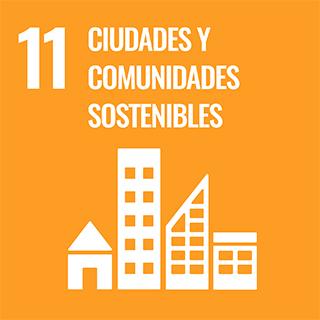
Indexed in
License and use

Citations
Impact on the Sustainable Development Goals (SDGs)

Analysis of institutional authors
Solano EcgCorresponding AuthorExtractivism, social explosion and territorial processes: effects of coal mining in Cesar and La Guajira, Colombia
Publicated to:Bitacora Urbano Territorial. 33 (1): 239-254 - 2023-04-01 33(1), DOI: 10.15446/bitacora.v33n1.102392
Authors: Solano, ECG
Affiliations
Abstract
The social uprising in Colombia since 2019 and the effects of the COVID-19 pandemic have exacerbated tensions revealing unusual territorial disputes. This article presents socio-spatial processes derived from the transformations induced by extractivism in the departments of Cesar and La Guajira, emphasizing the role of social mobilization. The objective is to expose dynamics that reflect the territorialization of production relations. The intention that directed the investigation was to capture guidelines that allow interpreting emerging conditions in regional environments impacted by extractivism. For this, official indicators were used, press monitoring and cartographic analysis of satellite images were carried out. It was concluded that there is a diverse articulation of social actors that arise from the existing territorial dynamics and challenge the bases of the extractivist model. With this perspective, we reflect on the role of territorial planning in the face of the urgency of new alternatives that imply overcoming the current socio-environmental crisis derived from transnational mining.
Keywords
Quality index
Bibliometric impact. Analysis of the contribution and dissemination channel
The work has been published in the journal Bitacora Urbano Territorial due to its progression and the good impact it has achieved in recent years, according to the agency Scopus (SJR), it has become a reference in its field. In the year of publication of the work, 2023, it was in position , thus managing to position itself as a Q2 (Segundo Cuartil), in the category Arts and Humanities (Miscellaneous). Notably, the journal is positioned en el Cuartil Q4 for the agency WoS (JCR) in the category Urban Studies.
Impact and social visibility
Leadership analysis of institutional authors
There is a significant leadership presence as some of the institution’s authors appear as the first or last signer, detailed as follows: First Author (GARCÍA SOLANO, ERNESTO CARLOS) and Last Author (GARCÍA SOLANO, ERNESTO CARLOS).
the author responsible for correspondence tasks has been GARCÍA SOLANO, ERNESTO CARLOS.